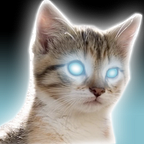The #AltGames Manifesto Part 2: An Art Games Industry?
(Part one)
Making games in the 1980's sucked. They had to be coded in assembly, writing the literal instructions that the target computer’s CPU was to perform. Most of the games that were written at the time were influenced by the technical limitations of the systems and the other interests of the people who made them. The sorts of books and comics they read, the sort of films and television programs they enjoyed.
The echoes of this heritage live on. You can still play games made in 2015 that feature mechanics and themes and stories found in games from 1985. There’s clearly still a market for this sort of thing and where there’s a demand, people will always be willing to try to supply.
These days there are tools like Unity, UE4 etc that make it easier than ever to produce games (at least the current idea of what games are). Games driven by things moving around and intersecting with collision boxes triggering some consequence or another. You’d be amazed at how much you can do with just that.
It’s these tools, along with more radical tools like Twine, that have opened up game development to people who aren’t coders.
Still, these non-coders still struggle with the stuff that remains difficult: Writing GPU shaders. Implementing game mechanics or graphics features not provided by the engine. Playability. Polish. Fun. These are the sorts of concerns a typical indie developer might have. They want a game that people want to buy and this means making their game look good, new and interesting or they’ve got to go back to their day job.
#AltGame developers fundamentally reject the idea that any of this is absolutely necessary. The primary ambition is to communicate different ideas, stories and concepts that are currently non-existent in the games industry as a whole. We live in an era of identity politics and our Twenty-something Twitterati are demanding that their voices and identities be given expression in a medium that, to them, has always existed, standing equally alongside films and television.
Can you honestly blame them? I can’t. It it against this backdrop, this sense of urgency to get distinctive voices out there, that slavish devotion to traditions of game development seem rightly of lesser concern.
Yet the question remains… who is going to pay for all this plucky experimentation? As I pointed out in Part 1, the model used by the Art World can’t apply to an ephemeral and easily duplicated digital medium like a game binary or a web page. To fund #AltGames you need to go back to an even older version of the Art Industry where art was funded entirely by wealthy patrons. The Internet has given us Patreon, a website that allows creators to be patronised by many individuals, all contributing a small amount.
But this is disturbing for me. We’re back into rather squalid Art World territory again: Who decides whether an #AltGames developer is a genuine artist, worthy of patronage? Who decides which #AltGame developers get the publicity they need to win enough patrons and who gets ignored?
It is over these sorts of complex and difficult questions that many months of bitter, tiresome and toxic fighting has been happening all over social media, but the truth is that right now it’s just a messy free for all, tied up with politics and driven by people’s anxieties and fears.
Who’s a real artist? This is where the Art World provides the answer. It’s whoever’s got a Fine Art degree, basically. No Fine Art degree, no Art. Then, of those with Fine Art degrees it becomes about who is the best at self promotion. Whose work is the most important? The Art World has had this sussed for decades.
So my greatest fear is that “becoming a successful games developer” becomes about self promotion over and above any actual skill or merit you possess. I became an art school drop out the second I realised the only thing that mattered was my ability to bullshit the right people and I knew, in my heart, that sort of lifestyle wasn’t for me. I just wanted to draw. I just wanted to paint.
Sooner or later we’re going to see Art Students using this medium. They will make things with game development tools to run on just one computer to be exhibited in just one place and the media and the Art World will say, yes, There Is Art. Those ‘punk’ #AltGame devs on the Internet? Well, you know, I mean it’s nice people have a hobby, right?
That’s what Games As Art actually means. And it sucks. Rather than communicating with more people than ever, it becomes a subset of games especially for middle class wankers to preen over, to flatter themselves by pretending to understand.
In part 3 I finally reveal my own #AltGames manifesto.
